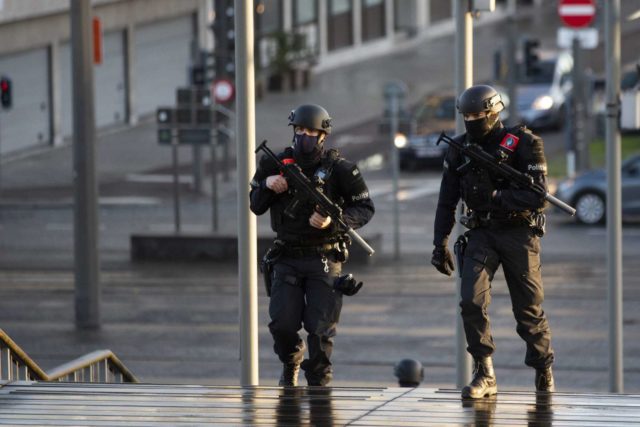A court in Belgium convicted an Iranian diplomat for the attempted bombing of a 2018 Iranian opposition group Thursday. Antwerp Criminal Court sentenced Assadollah Assadi, who served as an undercover intelligence official at the Iranian Embassy in Vienna, to 20 years in prison.
According to prosecutors, Assadi served as the “operational commander” for the terrorist attack. In June 2018, he smuggled about a pound of highly unstable triacetone triperoxide explosive and a detonator on a commercial flight from Iran to Vienna. Assadi then drove the bomb to Luxembourg, where he gave it to his co-conspirators. German authorities arrested Assadi at a service station in Germany a day after the drop-off.
Assadi claimed “diplomatic immunity” and refused to appear in court. But Belgium’s judiciary disagreed, stating that he had no immunity for his actions outside Austria and that any such protection would not cover criminal charges.
Judges also passed down jail sentences to three other co-conspirators, all dual Belgian-Iranian citizens. Two of them received the explosive, with another associate planning to guide the couple to their target. All three will be stripped of their Belgian citizenship and will serve between 15-18 years in prison.
Prosecutors contend that the group intended to kill Maryam Rajavi, the leader of the National Council of Resistance of Iran, at the group’s annual conference in Villepinte, France. Numerous high-profile American figures also attended the meeting, including former New York mayor Rudolph Giuliani, former New Mexico governor Bill Richardson, and the former Canadian prime minister Stephen Harper.
Belgium’s State Security Service declined to release how they initially became aware of Assadi’s plan. However, in a letter to prosecutors, agency officials had determined the “attack was conceived on behalf of Iran and … was state-sanction.” Additionally, chemical analysis of the explosives also confirms its Iranian origin.
Tehran continues to argue that Assadi had diplomatic immunity and that the attack was a “false flag,” meant to strain ties between Iran and Europe. While intelligence services seem aware of Iranian’s nefarious activities in Europe, it remains unclear whether such evidence will sway foreign policy in Brussels or other European capitals toward new sanctions. According to VOA, “EU foreign policy chief Josep Borrell declined to comment when asked by reporters for his reaction.”


